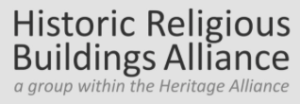National Lottery Grants for Heritage – an outline
This outline is intended only to give a flavour of the grants programme. Authoritative details will be found at:
https://www.hrballiance.org.uk/resources/funding/.
Purpose
Grants are to support the heritage sector to strengthen its recovery from the coronavirus (COVID-19) in the medium term and to build back for positive change across the UK’s heritage. The scheme supports a broad range of heritage projects and activities.
This will mark a return to NLHF’s core business, but it is not a return to “business as usual”.
Size of grants
Three levels of grants are available:
- from £3,000 to £10,000
- from £10,000 to £250,000
- from £250,000 to £5 million
What expenditure is eligible
Outcomes
During 2021-22, in response to the COVID-19 pandemic, priority will be given to at least one or more of the following outcomes:
- A wider range of people will be involved in heritage’ (mandatory outcome)
- The funded organisation will be more resilient
- People will have greater wellbeing
- People will have developed skills
- The local area will be a better place to live, work or visit
- The local economy will be boosted
The other three outcomes are:
- Heritage will be in better condition.
- Heritage will be identified and better explained.
- People will have learnt about heritage, leading to change in ideas and actions.
All projects are to demonstrate that they are building long-term environmental sustainability into their plans, as appropriate
The three priorities for heritage remain:
- Landscape and nature.
- Community heritage.
- Heritage at risk.
Types of activity
The funding can support a broad range of types of activity and cover a wide range of direct project costs. As an example, projects could include:
- Volunteer expenses
- Training costs
- Event costs (including room hire, refreshments and equipment)
- Capital works
- Repair and maintenance (revenue)
- New staff posts
- Professional fees (for example, legal costs)
- Paid training placements
- Costs to improve access to heritage
- Activities to help strengthen the organisation
- Costs associated with taking on new responsibility for heritage (for example, feasibility studies)
- Full Cost Recovery
- Digital outputs
- Repair and conservation

